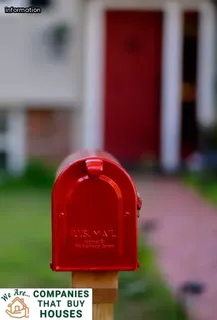As a landlord in New York, it is important to know your rights when it comes to tenant damage to property. Tenants are responsible for any type of damage they cause on the premises, and landlords have the right to deduct the cost of repairs from their security deposit.
However, if the amount of damage exceeds the security deposit amount, then landlords can pursue legal action against the tenant. Landlords should also keep a record of all damages, including photographs, so that they can back up their claim in court if necessary.
Additionally, landlords must give tenants written notice before entering their rental unit and cannot enter without a tenant's consent, except under certain circumstances such as an emergency. Lastly, landlords must follow all local laws regarding tenant eviction procedures and cannot use “self-help” measures such as changing locks or shutting off utilities to force tenants out of their rental unit.
Understanding your rights as a landlord in New York is essential for protecting yourself from costly repairs or legal action due to tenant damage.

In New York, landlords have a legal obligation to provide tenants with safe and secure rental property. Tenant damage to rental property is addressed under the law by assigning responsibility for any damages to either the tenant or the landlord.
The New York State Department of Housing and Community Renewal (DHCR) administers the laws related to tenant damage and provides information on how it should be handled. Generally, a tenant is responsible for any damage they cause intentionally or through negligence to their rental unit or other common areas in the building.
Responsibility for repairs due to normal wear and tear falls on the landlord, as well as damage caused by their own negligence or that of their employees. Landlords must also ensure that all safety and health standards are met when making necessary repairs due to tenant caused damage.
If a tenant refuses to pay for damages they are responsible for, the landlord can deduct these costs from the security deposit upon termination of the lease agreement.
As a landlord in New York, there are several steps you can take to protect your rental property from tenant damage. First, be sure to carry adequate insurance coverage.
Landlord insurance should cover fire and other types of damage, as well as liability in case of an accident on the premises. Secondly, thoroughly screen tenants before allowing them to move into the property.
Carefully review their credit history and references to ensure they will be responsible renters. Additionally, make sure that all tenants sign a lease agreement that outlines their responsibilities regarding maintenance and repairs.
This should include details about how to handle any damage caused by them or their guests during the tenancy. Finally, inspect the property regularly - both between tenants and after they vacate - so that any damage can be addressed promptly and appropriately.

When searching for a rental property, many tenants are looking for the lowest possible rent and security deposit. As a landlord in New York, this can be advantageous as it can help attract potential renters.
Lower rents can lead to a larger pool of applicants and encourages competition among them. This helps you to find the best tenant for your property.
A lower security deposit is also beneficial as it makes it more affordable for tenants to move in and gives them peace of mind that their deposit will not be unreasonably high. Additionally, it could be used as an incentive if there is tough competition between applicants when deciding who should be accepted for tenancy.
Furthermore, with lower deposits, landlords may have less money tied up in each individual tenancy agreement which could free up funds for other investments or repairs that need attention on their properties. Finally, lower deposits decrease the amount of paperwork needed and make the process easier for both landlord and tenant alike.
As a landlord in New York, it is important to understand the risks associated with tenant damage to property. It is critical to ensure that all tenants are aware of their obligations and responsibilities when signing a rental agreement.
By implementing certain measures, landlords can minimize the risk of tenant damage to the property. This includes establishing clear policies and expectations for tenants, having an inspection checklist at move-in and move-out, obtaining a security deposit, and requiring tenants to purchase renters insurance.
Additionally, landlords should document any pre-existing damage or conditions prior to tenancy in order to mitigate any future disputes over who caused the damage. By following these steps, landlords can protect themselves against tenant damage while ensuring that their tenants have a safe and enjoyable living environment.

As a landlord in New York, it is essential to document everything when it comes to tenant damage to property. Having clear records of any damage and repairs that have been made can help protect the landlord from being taken advantage of in the future.
It’s important to take pictures of the property before and after renting it out, as well as after any damages have been done. This provides proof of what was there initially and what was damaged during the tenant’s stay.
Additionally, keeping track of all correspondence between the landlord and tenant regarding damages or repairs can help provide further evidence if needed. Lastly, having an agreement with tenants that outlines their responsibility for any damages can help clarify expectations on both sides and provide further protection for landlords in New York.
Following these best practices for documenting everything will ensure that landlords are adequately prepared if any concerns arise over tenant damage to property.
When it comes to damage done to property by tenants in New York, landlords must know when to use security deposit funds. Damage that goes beyond normal wear and tear can be costly for the landlord and if not properly addressed, can result in a decrease of rental value.
In order to make sure all possible costs are covered, landlords should look at repair quotes prior to using the security deposit. It is also important for landlords to document any damage done and take photographs for proof.
This will help ensure that the tenant is held accountable for any damages that exceed normal wear and tear. Additionally, landlords must also understand their local laws regarding security deposits as these differ from state to state and city to city.
Following these steps will help protect the landlord from potential losses due to damages caused by tenants.

For landlords in New York, regular property inspections are essential to ensuring that tenants have not caused any damage to the property. Inspections can help identify maintenance issues early on and prevent them from becoming more costly problems later.
Taking action when tenant damage is present is also an important part of being a landlord in New York, as it sets a precedent for future tenants and reinforces expectations for proper care of the rental property. Property owners should make sure inspection dates are clearly communicated to all tenants and documented accordingly.
Tenant-landlord agreements should include language specifying the landlord’s right to enter the rental unit for property inspections, with appropriate notice provided in advance. Having protection in place can help resolve disputes quickly and minimize legal expenses if a problem arises.
Regular property inspections are also beneficial for identifying needed repairs or renovations that could increase the value of the rental, ultimately resulting in additional profit for the landlord.
When landlords in New York are faced with tenant damage to their property, they can often find themselves overwhelmed and frustrated. Dealing with this type of situation can be emotionally taxing, as the financial and time costs of repairs may be difficult to bear.
It is important for landlords to ensure that they manage their emotions properly when dealing with tenant damage in order to assess the situation more objectively. This might mean taking a few moments before responding or involving a third-party mediator if needed.
By taking the time to process and understand the damage, it can help landlords take action that is both fair and beneficial for all parties involved. Additionally, seeking professional advice from a lawyer or real estate expert can provide assistance in navigating any legal issues that may arise from tenant damage.
Taking care of one’s emotional wellbeing is essential during these times of difficulty, so landlords should prioritize self-care throughout the process.

New York landlords must be aware of the unique tenant protections put in place by the state. These laws include a tenant's right to withhold rent if there is damage to the property, as well as their ability to take legal action against landlords for retaliatory eviction.
Additionally, landlords are required to provide written notice of any rental increases and must return security deposits within 14 days of a tenant’s departure. It is also important for New York landlords to know that they can only charge tenants a reasonable amount of money for damages caused by them beyond normal wear and tear.
Landlords should also understand that they may not pursue a tenant for damages after they have moved out unless they have obtained a court order. Finally, when it comes to tenant damage, New York law allows landlords to enter a unit without prior notice or permission in certain cases such as an emergency repair situation.
When it comes to landlords in New York, they have the legal right to take action when a tenant causes damage to their property. This could include anything from a broken window to graffiti on the walls.
Landlords are allowed to withhold part or all of a security deposit if the tenant is found responsible for any damage. In some cases, landlords may be able to sue tenants for damages that exceed the amount of the security deposit.
It's important for landlords in New York to make sure they follow state laws regarding tenant-landlord relationships and take appropriate action when there is damage caused by a tenant. Landlords should also document any damage and provide evidence that it was caused by their tenant.
If proper documentation is provided, landlords will have a better chance at receiving compensation or having their case heard in court.

Before taking legal action, it's important for landlords in New York to explore alternative avenues when tenants damage their property.
Negotiations with tenants should always be the first step, and if they are unable or unwilling to pay for repair costs, landlords can consider taking the security deposit to cover these costs.
Landlords should also consider filing a complaint with their local tenant board as well as exploring mediation services and other forms of dispute resolution.
When it comes to landlord-tenant disputes, navigating the legal system can be complicated, so it's important to look into all available options before taking court proceedings.
Landlords in New York must be able to differentiate between normal wear-and-tear and damage done to their property by tenants. This can be a tricky task, as “normal wear-and-tear” is usually defined as unavoidable changes that occur over time due to the tenant’s regular use of the premises, while damage is an alteration caused by intentional or accidental abuse of the property.
In order to ensure that any deductions from a tenant’s security deposit are valid, it is important for landlords to conduct an inspection upon move out. During this inspection, it should be documented with pictures and videos if possible what condition the rental unit was in when the tenant moved in and after they moved out.
Additionally, landlords should also track any repairs or maintenance they have done throughout the duration of the tenancy in order to show that any charges were due to damage by the tenant. Lastly, landlords should always consult their state landlord-tenant law when making decisions regarding security deposits, since there are limits on how much can be deducted and how soon after move out the deposit must be returned.

As a landlord in New York, it is important to take proactive steps to reduce the chance of future tenant damage to your property. One way to do this is by thoroughly screening potential tenants before signing a lease.
This includes performing background checks and credit checks, as well as verifying rental history and employment information. Additionally, it is important for landlords to establish clear expectations for tenants in their lease agreements.
This should include rules about pets and smoking, as well as specifications that outline what types of damages are not allowed on the premises. Landlords should also inspect the property regularly to identify any existing damage or areas that may be at risk of future damage.
Finally, landlords should consider implementing security measures such as locks on doors or window bars to discourage vandalism or theft. Taking these steps can help ensure that landlords in New York have a positive rental experience with their tenants and reduce the likelihood of costly repairs due to tenant-inflicted damage.
When a tenant causes damage to a landlord's property, it can be difficult to know how to proceed. In some cases, the landlord may have the option of engaging law enforcement or the courts to help resolve the issue.
Depending on the severity of the damage and the specifics of local laws, a landlord may be able to file criminal charges against their tenant for destruction of property. Alternately, if there is an existing lease that outlines potential remedies in such cases, then filing a civil suit may be an option as well.
Regardless of which route is taken, landlords should ensure they are familiar with local laws and how they apply to their situation before taking any action. Furthermore, landlords should also make sure they have all necessary evidence before pursuing legal action in order to increase the likelihood that their case will be successful.

If you're a landlord in New York and need help navigating tenant damage to property, setting up a free strategy session with an attorney can provide the legal guidance and advice you need. Landlord-tenant law is complex and ever-changing, so it's important to consult with an experienced attorney who can evaluate your situation and recommend the best course of action.
During the free strategy session, you should be prepared to discuss the specifics of your case, such as the extent of damage done to your property and what type of rights you have as a landlord. An attorney will be able to tell you if there are any applicable laws that may help during this difficult time.
Furthermore, they will be able to inform you of any available options for pursuing compensation from tenants or filing eviction notices should that become necessary. With the right legal advice, landlords in New York can confidently manage tenant damage to their property.
When it comes to tenant damage to property, landlords in New York must understand the consequences of taking a case to court. Landlords should be aware that the legal process is expensive, time-consuming and can be unpredictable.
In addition, landlords should weigh their options carefully before deciding to pursue litigation against a tenant. This is because filing a lawsuit could result in irreparable damage to landlord-tenant relationships and put additional strain on both parties' financial resources.
Depending on the nature of the dispute, it may be more beneficial for both parties to explore alternative resolution methods such as mediation or arbitration. These methods are typically faster and less costly than going through the courts and could ultimately resolve the issue without further damaging either party's interests.
Ultimately, landlords must consider all potential outcomes before deciding whether or not to take a case to court for tenant damage to property in New York.

As a landlord in New York, it is important to take measures to protect your property from unforeseen expenses due to tenant damage. While most tenants are reliable and respectful of their rental space, it is still necessary to prepare for any potential damages that could occur.
One way to do this is by having each tenant sign a detailed lease agreement that outlines the specific expectations for the property. The agreement should also include a clause about handling damages caused by the tenant that states how the costs will be shared between them and the landlord.
Additionally, landlords can purchase renters insurance which helps cover any repairs needed due to accidental damage from a tenant. Finally, regular inspections of the property can help identify any existing or potential issues before they become too costly.
Doing these things can help ensure you are adequately protected financially while renting out your property.
Landlords in New York must be aware of the laws regarding tenant damage to property. It is important to document any damage done and provide written notice that repairs are needed.
Having a clear policy in place for tenants is also essential, as it will help to avoid costly legal action if an issue arises. Additionally, landlords should take the necessary steps to ensure that tenants have sufficient liability insurance coverage in case of damages caused by their negligence or malicious intent.
Establishing a good relationship with tenants is also beneficial; this may include offering incentives for tenant compliance with rental policies or providing timely maintenance services when necessary. Lastly, landlords should be familiar with their state’s landlord-tenant law and make sure they are following all regulations; this will help protect them from potential legal issues that may arise out of tenant damage to the property.
In New York, a landlord can sue for damages if a tenant has caused destruction to the property. This includes cases of vandalism, negligence, and/or intentional damage.
A tenant may be held financially responsible for any damages that occur during the rental period and potentially even after the lease agreement has been terminated. It is important for landlords to ensure that they are familiar with their rights under the law so they can take appropriate legal action if necessary.
Landlords should document any damage caused by a tenant in order to have evidence of what occurred if they decide to pursue legal action. Additionally, it is important that landlords make sure they are aware of any applicable state or local regulations related to tenant damage before filing a lawsuit as these laws vary by jurisdiction.
By understanding their rights and taking the proper steps, landlords in New York can sue for damages when needed.

In New York, landlords can take legal action to recover damages from tenants for property damage. The statute of limitations for filing a lawsuit in New York is three years from when the landlord discovers or should have discovered the tenant's breach of their lease agreement.
If a landlord fails to file a lawsuit within three years, they will be prevented from recovering any compensation for the damage caused by the tenant. Landlords should act quickly if they choose to pursue legal action against their tenants in order to avoid missing out on any potential recovery.
Additionally, it is important that landlords keep detailed records and documentation of all relevant conversations with tenants in order to ensure that their case has as much evidence as possible in support of it.
New York property law 227 is an important law for landlords to know when it comes to tenant damage to their properties. This law outlines the rights of landlords and tenants in regards to tenant-caused damages.
It states that a landlord has the right to seek compensation from a tenant for any damage done to a rental unit, or any personal items within the unit, by that tenant. It also outlines what constitutes as “normal wear and tear” versus tenant-caused damage.
Landlords should familiarize themselves with this law so they can make sure they are taking proper legal action against tenants who may have caused damages to their property. Additionally, tenants should also be aware of this law so they are aware of their rights and responsibilities when it comes to paying for any damages that may have been caused by them.
Understanding New York property law 227 is essential for both landlords and tenants in handling tenant damage to property.
In New York, landlords have a duty to mitigate damages caused by tenants to their property. This means that a landlord must take reasonable steps to minimize the amount of harm inflicted on their property.
Examples of possible steps include repairing any damage as soon as possible, negotiating with the tenant to pay for repairs, and preventing further damage by limiting access to the property. Landlords should also document all damages, including photos of the affected areas.
They should also consult an attorney if they are unsure how best to proceed with mitigating tenant-caused damages to their property in New York.
In New York, landlords have an obligation to provide tenants with habitable premises that are safe and fit for human occupancy. According to the New York State Department of State, landlords must ensure that the rental unit is “in good repair” and “in a condition fit for occupation by human beings living therein”.
As such, the landlord must paint between tenants in order to keep the property in a habitable condition. If there is damage to the property caused by the previous tenant, such as holes in walls or marks on ceilings, then it is up to the landlord to repair or replace these items before renting out the unit again.
While this may incur additional costs for painting and repairs, it is necessary for landlords in New York to do so in order to keep their rental units livable and up-to-code.
New York Real Property Law 235 B is a law that applies to landlords in New York who are dealing with tenant damage to their property. This law outlines the responsibilities of landlords and tenants when it comes to repairs and other maintenance issues.
According to this law, a landlord must provide notice to the tenant of any damages caused by the tenant and provide an opportunity for the tenant to repair the damage before incurring any costs. If the damage is not repaired within a specific timeframe, then the landlord is allowed to deduct money from the tenant's security deposit or take other legal action to recoup losses related to repairs.
The law also defines what type of damages are considered normal wear-and-tear versus those that are considered negligence on behalf of the tenant. It also provides guidance for how landlords should handle disputes with tenants who do not agree with deductions from their security deposits or other remedies sought by the landlord.
Ultimately, New York Real Property Law 235B helps protect both landlords and tenants from potential financial disputes over damages in rental properties.
A: Tenants found responsible for damaging property in The City of New York may be liable to pay damages, face eviction, and/or face criminal charges. New Yorkers should take steps to ensure that they are not held accountable for any damage done to their rental property.
A: Yes, it is legal for a landlord in the City of New York to evict a tenant if they have caused damage to property. However, landlords should always file an eviction notice with the court and obtain police assistance to ensure that the eviction is carried out safely and properly.

A: Yes, New York law requires that rental dwellings meet basic standards of habitability and landlords must provide tenants with a warranty of habitability. This includes ensuring proper functioning heat and other essential services.
A: In the State of New York, landlords are responsible for ensuring their rental properties are adequately insured against damage. It is advisable to speak with an insurance agent to determine what types of damage an insurance policy would cover and the best course of action if repairs are needed due to tenant-caused water damage.
A: A landlord is entitled to seek a legal judgment against tenants for any damage caused to their property, including damages caused by lead-based paint or COVID-19. However, tenants who cannot afford legal representation may be eligible for free or reduced-cost legal aid through organizations like The Legal Aid Society.

A: Yes, a landlord in New York can sue a tenant for damages caused by sledgehammer behavior. The landlord may be able to obtain a judgment against the tenant for any reasonable costs associated with repairing or replacing property damaged due to the tenant’s actions. The landlord must prove in court that the tenant’s behavior was negligent or intentional, as well as that it resulted in damage to property beyond ordinary wear and tear.
A: No, it is not legal for a landlord to discriminate against any tenant based on their disability, whether or not the tenant has caused damage to property. Landlords must abide by the Fair Housing Act and treat all tenants fairly and equally regardless of disability or other protected characteristics.
A: Yes, it is considered criminal mischief and can lead to criminal charges and fines.